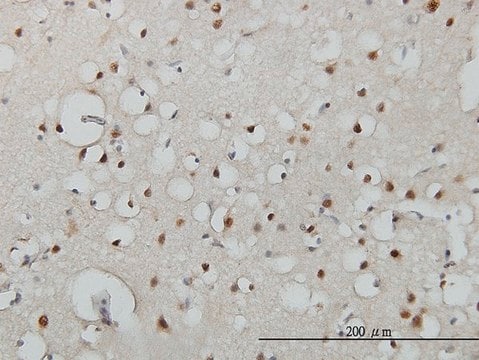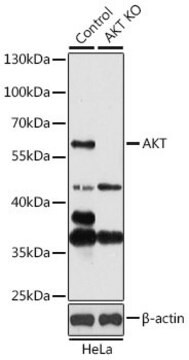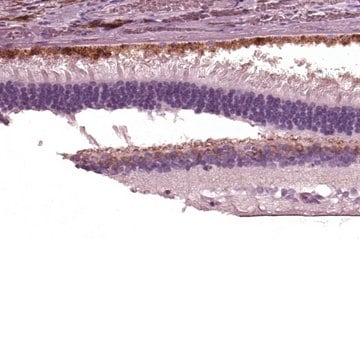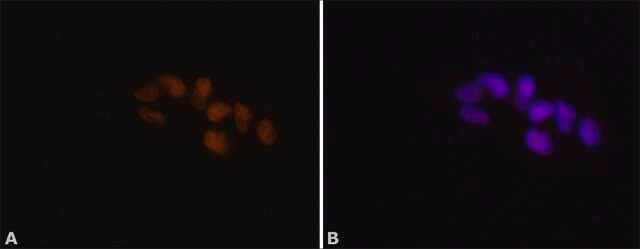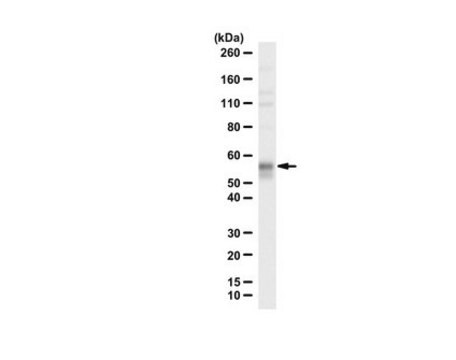SAB4300259
Anti-phospho-AKT1/AKT2/AKT3 (pTyr315/pTyr316/pTyr312) antibody produced in rabbit
affinity isolated antibody
Synonym(e):
Anti-AKT antibody produced in rabbit, Anti-DKFZp434N0250 antibody produced in rabbit, Anti-PKBB antibody produced in rabbit, Anti-v-akt murine thymoma viral oncogene homolog 1 / 2 / 3 (protein kinase B, gamma) antibody produced in rabbit
About This Item
Empfohlene Produkte
Biologische Quelle
rabbit
Konjugat
unconjugated
Antikörperform
affinity isolated antibody
Antikörper-Produkttyp
primary antibodies
Klon
polyclonal
Form
buffered aqueous solution
Mol-Gew.
~60 kDa
Speziesreaktivität
human, rat, mouse
Konzentration
1 mg/mL
Methode(n)
immunohistochemistry (formalin-fixed, paraffin-embedded sections): 1:50-1:100
indirect immunofluorescence: 1:100-1:200
western blot: 1:500-1:1000
Isotyp
IgG
Immunogene Sequenz
(P-E-YP-L-A)
NCBI-Hinterlegungsnummer
UniProt-Hinterlegungsnummer
Versandbedingung
wet ice
Lagertemp.
−20°C
Posttranslationale Modifikation Target
phosphorylation (pTyr315/pTyr316/pTyr312)
Angaben zum Gen
human ... AKT1(207) , AKT2(208) , AKT3(10000)
Verwandte Kategorien
Immunogen
Leistungsmerkmale und Vorteile
Zielbeschreibung
Physikalische Form
Haftungsausschluss
Not finding the right product?
Try our Produkt-Auswahlhilfe.
Lagerklassenschlüssel
10 - Combustible liquids
WGK
WGK 1
Flammpunkt (°F)
Not applicable
Flammpunkt (°C)
Not applicable
Analysenzertifikate (COA)
Suchen Sie nach Analysenzertifikate (COA), indem Sie die Lot-/Chargennummer des Produkts eingeben. Lot- und Chargennummern sind auf dem Produktetikett hinter den Wörtern ‘Lot’ oder ‘Batch’ (Lot oder Charge) zu finden.
Besitzen Sie dieses Produkt bereits?
In der Dokumentenbibliothek finden Sie die Dokumentation zu den Produkten, die Sie kürzlich erworben haben.
Unser Team von Wissenschaftlern verfügt über Erfahrung in allen Forschungsbereichen einschließlich Life Science, Materialwissenschaften, chemischer Synthese, Chromatographie, Analytik und vielen mehr..
Setzen Sie sich mit dem technischen Dienst in Verbindung.